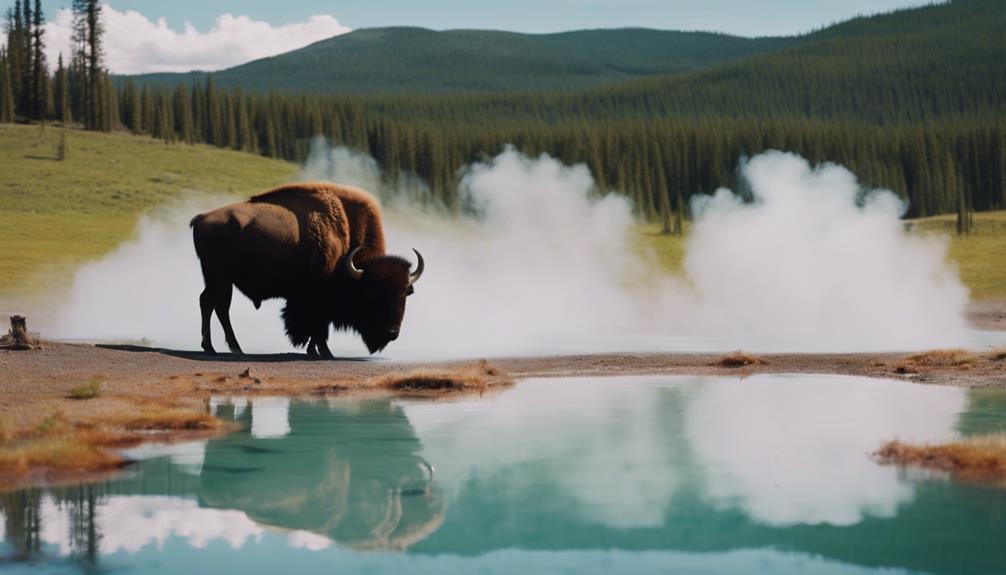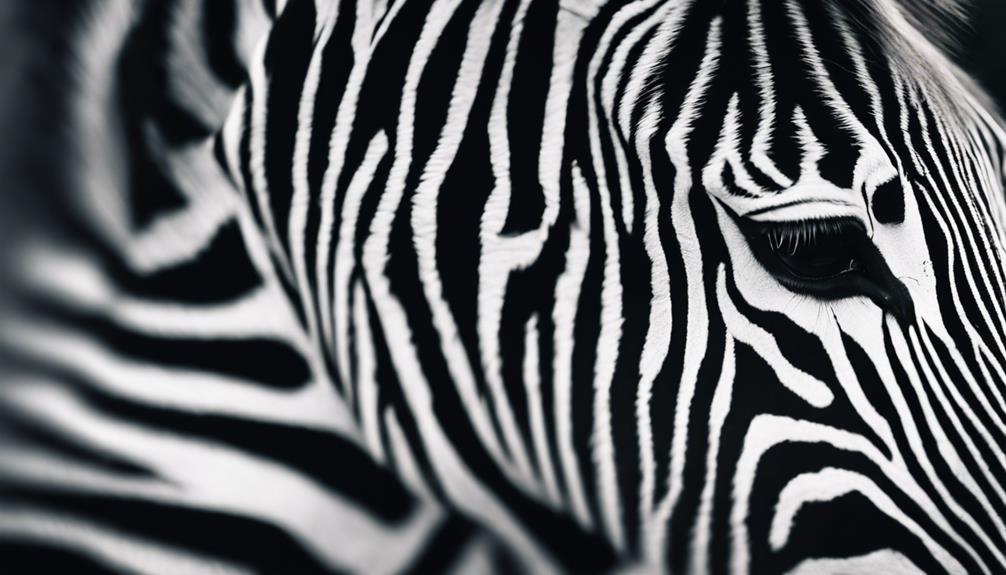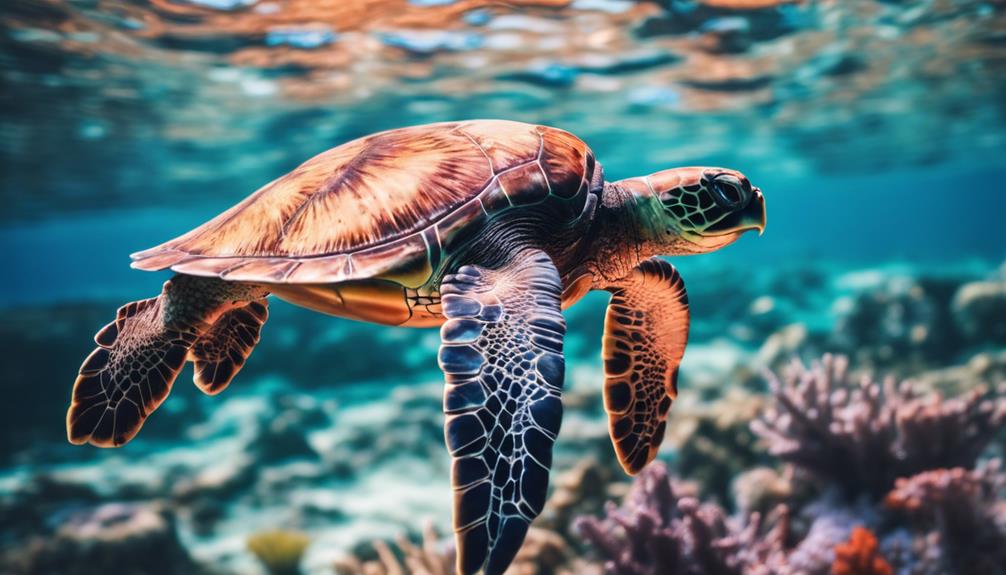Did you know that William Clark, the famed explorer and leader of the Lewis and Clark expedition, had a fascinating life full of interesting tidbits?
Get ready to embark on a journey through his incredible story, as we delve into some captivating fun facts about this legendary figure.
From his early years and education to his groundbreaking expedition across the West, we’ll uncover hidden gems and shed light on lesser-known aspects of Clark’s life.
So join us as we explore the remarkable world of William Clark!
Key Takeaways
- William Clark received education from his father and older brother, learning skills like navigation, mapmaking, and wilderness survival.
- Lewis and Clark faced various challenges on their expedition, persevering through treacherous terrain, dangerous wildlife, and limited supplies.
- William Clark’s mapping skills were showcased during the expedition, revealing geographical features and indigenous communities.
- Interactions between Native Americans and explorers were pivotal in cultural exchange, with mutual respect laying the foundation for positive exchange of ideas and knowledge.
Early Life and Education
William Clark didn’t attend college, but you know what? That didn’t stop him from having an incredible early life and getting an education that shaped his future.
His father and older brother were his mentors, guiding him through the world of knowledge and adventure. They taught him valuable skills like navigation, mapmaking, and wilderness survival.
From a young age, William had a thirst for exploration and discovery. He was eager to learn about different cultures, geography, and natural history.
This early education laid the foundation for his later achievements as a famous explorer alongside Meriwether Lewis.
It goes to show that sometimes the best education can come from those closest to us, paving the way for our own unique path in life.
Expedition With Meriwether Lewis
Embark on a journey through the untamed wilderness with Meriwether Lewis and face the myriad of challenges they encountered.
From treacherous terrain to hostile encounters, these brave explorers persevered against all odds.
Along the way, they made remarkable discoveries that forever shaped our understanding of America’s vast landscape and its indigenous peoples.
Challenges They Faced
Despite the difficulties they encountered, Lewis and Clark persevered through various challenges on their expedition. They faced obstacles that tested their courage and determination, but they never wavered in their pursuit of knowledge and discovery. The table below highlights some of the key difficulties they overcame:
| Difficulty | Obstacle |
|---|---|
| Harsh weather | Freezing temperatures |
| Dangerous wildlife | Grizzly bears |
| Treacherous terrain | Rocky mountains |
| Limited supplies | Food shortages |
These challenges may have seemed insurmountable to others, but Lewis and Clark approached them with an innovative mindset. They used their visionary thinking to find solutions and navigate through uncharted territories. Their influential journey not only advanced geographical knowledge but also created a sense of belonging among the members of their expedition. Together, they formed a tight-knit group united by shared experiences and the desire for exploration.
Discoveries They Made
As you explored new lands, you made remarkable discoveries that expanded the boundaries of geographical knowledge. Your curiosity and determination led to impactful findings that changed the course of history.
Through your expeditions, vast landscapes were unveiled, revealing majestic mountains, roaring rivers, and untouched wilderness. You encountered diverse indigenous cultures, witnessing their unique traditions and ways of life. These interactions fostered a deeper understanding and appreciation for human diversity.
Along your journey, you stumbled upon previously unknown species of plants and animals, forever altering the scientific community’s understanding of the natural world. Your discoveries not only shaped geographical knowledge but also had a profound impact on future explorations and furthered our collective understanding of the world we inhabit.
Through your courageous exploration, you left an indelible mark on humanity’s quest for discovery and belonging in this vast universe.
Mapping the West
You can see William Clark’s skills as a cartographer when he meticulously mapped the West during his expedition with Meriwether Lewis. His exploration techniques were innovative and visionary, paving the way for future adventurers to follow.
As he traversed the uncharted territories, Clark’s maps not only revealed the geographical features of the land but also served as a testament to his deep understanding of indigenous communities. With each stroke of his pen, he captured their rich cultural heritage, acknowledging their presence and impact on the region.
Clark’s mapping efforts created a sense of belonging for both explorers and indigenous peoples alike, fostering a deeper appreciation for the interconnectedness of all inhabitants in this vast expanse of land. His meticulous cartography continues to inspire modern-day mapmakers and serves as a reminder that exploration should always be accompanied by respect and admiration for those who came before us.
Encounter With Native American Tribes
When encountering Native American tribes, it’s important to approach with curiosity and an open mind. The interactions between Native Americans and explorers like William Clark were pivotal in shaping cultural exchange during the westward expansion. Here are three key aspects of these interactions:
-
Mutual Respect: Both parties showed respect for each other’s customs, beliefs, and way of life. This laid the foundation for a positive exchange of ideas and knowledge.
-
Language Exchange: Explorers like Clark made efforts to learn Native American languages, enabling better communication and understanding between different cultures.
-
Trade and Cooperation: Native Americans taught explorers survival skills, while explorers introduced new tools and technologies to enhance their daily lives.
These encounters fostered a sense of belonging among both groups as they learned from each other, creating a rich tapestry of cultural diversity that continues to shape our society today.
Contributions to Science and Botany
Take a moment to appreciate the contributions Native Americans made to science and botany during their interactions with explorers. Their knowledge of plants and their medicinal properties greatly influenced botanical research and scientific contributions. Through their deep understanding of the natural world, Native Americans provided valuable insights into the uses and benefits of various plant species. They shared this wisdom with explorers like William Clark, who documented these findings in his journals. This collaboration between Native Americans and explorers not only expanded our understanding of botany but also led to advancements in medicine and agriculture. The table below highlights some notable examples of botanical discoveries made during these interactions:
| Plant Name | Medicinal Properties |
|---|---|
| Sagebrush | Treats respiratory ailments |
| Yarrow | Stops bleeding |
| Echinacea | Boosts immune system |
| Slippery Elm | Soothes sore throat |
| Lobelia | Relieves asthma symptoms |
Together, through their shared knowledge and mutual respect for nature, Native Americans and explorers like William Clark paved the way for groundbreaking discoveries in the field of botany.
Later Life and Career
As you delve into the later life and career of William Clark, you’ll discover a plethora of post-expedition achievements that solidified his reputation as an influential figure in American history.
From serving as Superintendent of Indian Affairs to being appointed Governor of the Missouri Territory, Clark’s political and diplomatic endeavors left a lasting impact on the nation’s development.
His legacy and influence continue to be felt today, not only through his exploration with Lewis but also through his contributions to Native American relations and Western expansion.
Post-Expedition Achievements
One of William Clark’s most notable post-expedition achievements is his role as the Governor of the Missouri Territory. During this time, he continued his exploration and scientific research, further solidifying his legacy as an influential figure in American history.
Here are three remarkable accomplishments from his post-expedition travels:
-
Mapping and Documentation: Clark diligently recorded detailed maps and descriptions of the lands he encountered during his journeys, contributing to a better understanding of the Western territories.
-
Cultural Diplomacy: He established positive relationships with Native American tribes, promoting peace and cooperation between settlers and indigenous peoples.
-
Environmental Advocacy: Recognizing the importance of preserving nature, Clark advocated for responsible land management practices to protect natural resources for future generations.
Through these endeavors, Clark not only expanded our knowledge of unexplored territories but also fostered a sense of belonging by promoting unity among diverse groups and emphasizing the need for environmental stewardship. His visionary approach continues to inspire us today.
Political and Diplomatic Endeavors
After his remarkable achievements on the expedition, William Clark continued to make a significant impact in the realm of political and diplomatic endeavors. His astute understanding of international relations allowed him to form crucial political alliances that shaped the course of American history.
One notable example is Clark’s role in negotiating with Native American tribes. He recognized the importance of establishing peaceful relations and worked tirelessly to foster trust and cooperation between indigenous communities and the United States government. This approach not only ensured stability along the frontiers but also promoted cultural understanding and respect.
Additionally, Clark played a pivotal role in expanding America’s influence beyond its borders. Through strategic diplomacy, he forged alliances with neighboring nations, securing valuable trade agreements that boosted economic growth and strengthened global ties.
Clark’s visionary leadership in political alliances and international relations cemented his legacy as a statesman who embraced diversity and unity for a better future.
| Political Alliances | International Relations |
|---|---|
| Negotiating with tribes | Forging global ties |
| Promoting cultural understanding | Securing trade agreements |
| Fostering trust | Boosting economic growth |
Join us as we explore more intriguing facets of William Clark’s extraordinary life!
Legacy and Influence
Explore the lasting impact of William Clark’s visionary leadership and diplomatic accomplishments, as they continue to shape the course of American history. His influence on exploration and cultural impact cannot be overstated.
Here are three ways in which his legacy has left an indelible mark:
-
Expansion of knowledge: Clark’s leadership during the Lewis and Clark Expedition opened up new frontiers, mapping out previously unexplored territories and expanding America’s understanding of its own land.
-
Promoting cultural exchange: Through interactions with Native American tribes, Clark fostered relationships that allowed for greater cultural understanding and cooperation.
-
Inspiring future generations: Clark’s expedition inspired countless explorers who followed in his footsteps, fueling a sense of adventure and discovery that still resonates today.
William Clark’s legacy remains influential, shaping both the exploration of new lands and the appreciation for diverse cultures that define America’s rich heritage.
Legacy and Honors
William Clark’s legacy includes being recognized for his contributions as an explorer and holding various positions in government. His impact and influence can be seen through the honors and awards he received during his lifetime. Here is a glimpse into some of the recognition William Clark received:
| Honors and Awards | Impact | Influence |
|---|---|---|
| Lewis and Clark Expedition | Expanded knowledge of Western territories | Inspired future explorers |
| Governor of Missouri Territory | Helped establish law and order in the region | Shaped the development of Missouri |
| Superintendent of Indian Affairs | Worked towards peaceful relations with Native American tribes | Fostered diplomacy between settlers and indigenous peoples |
| Brigadier General in the War of 1812 | Defended American interests against British forces | Demonstrated bravery and leadership on the battlefield |
These accolades showcase William Clark’s extraordinary achievements, illustrating his commitment to exploration, governance, diplomacy, and military service. His legacy continues to inspire generations, reminding us of our potential for greatness when we dare to venture into uncharted territories.
Interesting Personal Trivia
Did you know that William Clark had a pet dog named Seaman who accompanied him on the Lewis and Clark Expedition? It’s just one of the many interesting personal achievements and lesser known facts about this visionary explorer. Here are three more fascinating tidbits about William Clark:
-
Accomplished Artist: Beyond his role as an explorer, Clark was also a talented artist. He documented the landscapes, plants, and animals they encountered during their expedition through detailed sketches and paintings.
-
Native American Connections: During his time as an Indian agent after the Expedition, Clark developed close relationships with various Native American tribes. He even adopted two Native American boys into his family, demonstrating his respect for their culture.
-
Political Career: After the Expedition, Clark went on to have a successful political career. He served as governor of Missouri Territory for over 20 years and played a pivotal role in shaping the state’s early development.
These personal achievements and lesser known facts highlight the depth of William Clark’s character and contribute to his lasting legacy in American history.
Frequently Asked Questions
What Were William Clark’s Hobbies and Interests Outside of His Expeditions?
You’ll love learning about William Clark’s hobbies and interests outside of his expeditions! He had a passion for nature exploration and an appreciation for Native American culture. Isn’t that fascinating?
Did William Clark Have Any Siblings?
Yes, William Clark had siblings. His family’s reaction to his exploration was mixed. Some were supportive and proud of his achievements, while others worried about his safety and the uncertainty of his journey.
How Did William Clark’s Family Feel About His Decision to Explore the West?
William Clark’s family had mixed reactions to his decision to explore the west. Some were supportive and admired his adventurous spirit, while others worried about the dangers he would face.
What Challenges Did William Clark Face During His Expedition With Meriwether Lewis?
During their expedition, William Clark faced numerous challenges. These obstacles ranged from treacherous terrains to harsh weather conditions. Additionally, their presence had a significant impact on Native Americans, altering their way of life and relationships with other tribes.
Did William Clark Encounter Any Dangerous Animals During His Exploration of the West?
During William Clark’s exploration of the West, he encountered a variety of dangerous animals. His fascination with Native American culture led him to observe and document these encounters, contributing to our understanding of the region’s wildlife.
Conclusion
Congratulations on discovering the fascinating journey of William Clark!
From his early life and education to his groundbreaking expedition with Meriwether Lewis, Clark’s contributions to science and botany have shaped our understanding of the American West.
His encounters with Native American tribes further highlight the rich cultural tapestry of this vast land.
As we reflect on his legacy and numerous honors, we can’t help but be inspired by Clark’s tireless curiosity and determination.
His story invites us to embark on our own adventures, pushing boundaries and seeking knowledge in every corner of our world.





